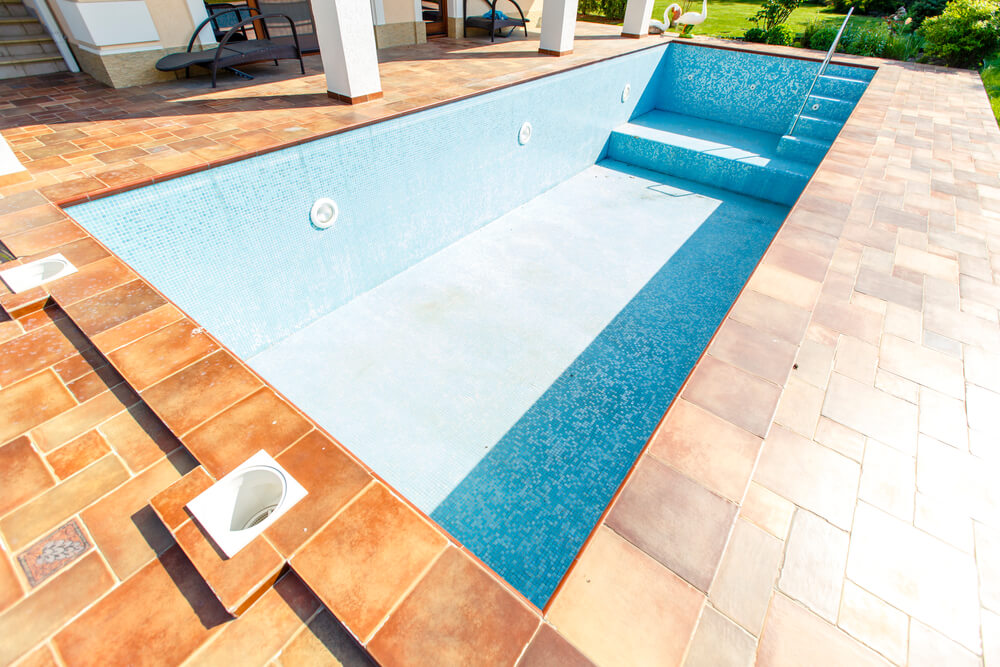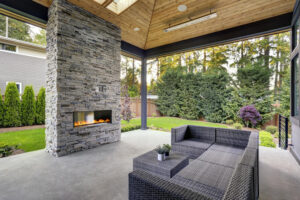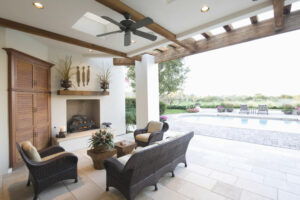A backyard pool is not just a luxury; it’s an investment that enhances the beauty and functionality of your outdoor space. One of the crucial decisions in the process of swimming pool construction is choosing the right pool material. The choice of pool material not only affects the aesthetics but also determines the pool’s longevity and maintenance requirements. In this guide, the pros at Cricket Pavers will explore the key factors to consider when selecting the best pool material for your outdoor pool construction project.
Understanding the Importance of Pool Material
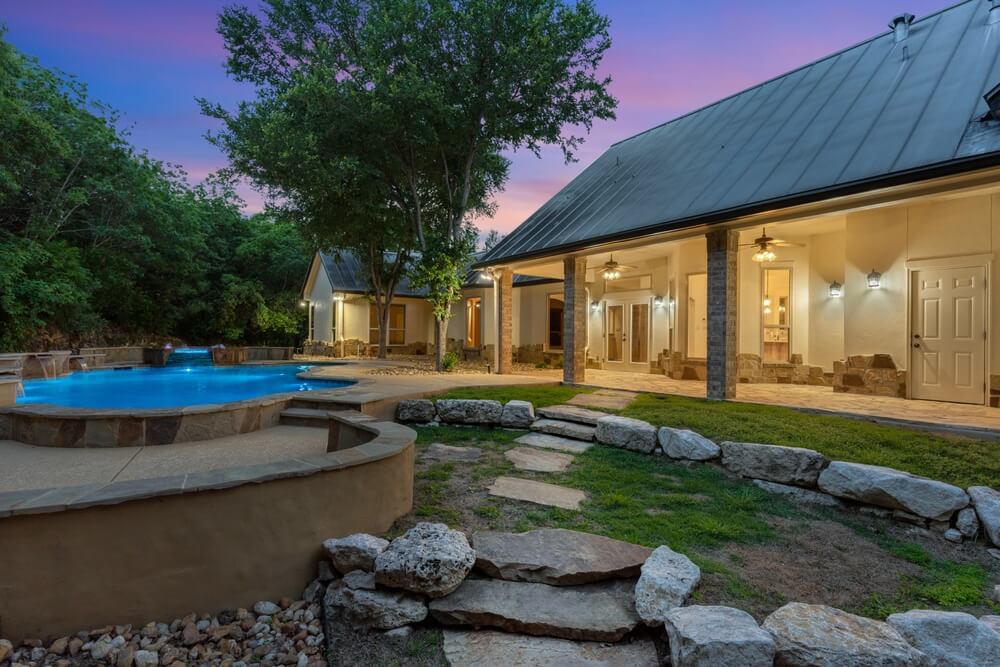
The pool material serves as the foundation of your outdoor oasis, influencing factors such as durability, appearance, and maintenance. With a plethora of options available, each with its own set of advantages and drawbacks, making an informed decision is essential for a successful pool construction project.
Concrete – The Time-Tested Classic
Concrete remains a popular choice for outdoor swimming pool construction due to its durability and versatility. It allows for customizable shapes and designs, providing homeowners with the flexibility to create a unique pool that complements their outdoor space. Additionally, concrete pools can be finished with various materials, such as tiles or plaster, allowing for a personalized touch.
However, it’s important to note that concrete pools may require more maintenance than other options, and the construction process can be lengthier. Regular inspections and resurfacing may be necessary to keep the pool in optimal condition.
Fiberglass – Low Maintenance Elegance
For those seeking a low-maintenance option with a sleek finish, fiberglass is an excellent choice. Fiberglass pools are pre-manufactured and installed as one piece, reducing construction time significantly. The smooth surface of fiberglass also inhibits the growth of algae, making maintenance tasks more manageable.
While fiberglass pools offer a quick installation process and require less maintenance, they may limit design options due to their pre-made nature. Homeowners looking for a unique, customized pool shape may find fiberglass less accommodating.
Furthermore, fiberglass pools are known for their resilience and resistance to staining, providing a long-lasting and aesthetically pleasing solution for homeowners. It’s important to note that while the pre-manufactured nature of fiberglass pools streamlines the construction process, it might limit the creative freedom in terms of size, shape, and features, making it essential for homeowners to weigh the benefits of low maintenance against the desire for a highly customized pool design.
Vinyl – Budget-Friendly Customization
Vinyl-lined pools strike a balance between affordability and customization. These pools feature a vinyl liner that covers the pool structure, providing a smooth surface. Vinyl pools are often more budget-friendly than concrete or fiberglass options, making them a popular choice for homeowners looking for a cost-effective solution.
However, it’s crucial to be mindful of the vinyl liner’s lifespan, which typically needs replacement every 10 to 15 years. Additionally, while vinyl pools offer customization, the design options may not be as extensive as those available with concrete.
Homeowners considering a vinyl pool should be aware that the liner is susceptible to punctures and tears, which can result in water leakage and require prompt repair. Regular inspection and maintenance of the vinyl liner are essential to prolong its lifespan and ensure the pool remains watertight.
Despite the periodic need for liner replacement, the overall maintenance of vinyl pools tends to be less intensive compared to concrete alternatives. The smooth surface of the vinyl prevents the growth of algae, reducing the frequency of cleaning and chemical treatments. Additionally, advancements in vinyl pool technology have led to increased durability and resistance to fading, enhancing the material’s overall performance. In conclusion, while vinyl pools may require periodic attention to the liner, their budget-friendly nature and customizable features make them an attractive option for homeowners seeking an affordable and personalized swimming pool solution.
Choosing the Best Pool Material for Your Outdoor Oasis
Embarking on the journey of constructing your dream outdoor swimming pool is an exciting endeavor, but selecting the right pool material requires careful consideration of various factors. Your choice will not only impact the aesthetics of your outdoor oasis but also affect your budget, maintenance efforts, and the longevity of your investment. To make an informed decision, delve deeper into the following key factors:
Budget: Navigating Financial Considerations
Before diving into pool material options, it’s crucial to establish a clear understanding of your budget constraints. Pool construction costs can vary significantly based on the chosen material, design complexity, and additional features. Concrete pools, for instance, might entail a higher upfront cost, whereas vinyl-lined pools often present a more budget-friendly option.
Consider not only the initial expenses but also potential long-term costs associated with maintenance and repairs. While it might be tempting to opt for the least expensive option, it’s essential to strike a balance between your financial plan and the desired features of your outdoor oasis.
Aesthetic Preferences: Crafting Your Outdoor Vision
Your outdoor pool is a centerpiece of your home, and its design should seamlessly integrate with the overall aesthetics of your outdoor space. Each pool material brings its own visual appeal, texture, and finish. Concrete pools allow for a high degree of customization, enabling you to sculpt unique shapes and integrate various finishes like tiles or plaster. Fiberglass pools, on the other hand, boast a smooth, modern finish that can lend an elegant touch to your surroundings.
Reflect on your personal style and the ambiance you wish to create. Whether you envision a sleek, contemporary design or a more natural, rustic look, choosing a pool material that complements your vision will enhance the overall appeal of your outdoor oasis.
Maintenance: Balancing Effort and Enjoyment
Maintenance is a critical consideration when selecting a pool material, as it directly influences the time and effort you’ll need to invest in keeping your pool pristine. Fiberglass and vinyl pools are known for their low-maintenance characteristics. The smooth surfaces of these materials make it more challenging for algae to adhere, reducing the frequency of cleaning.
On the other hand, concrete pools may require more attention to maintain their appearance and structural integrity. Regular inspections, cleaning, and potential resurfacing should be factored into your maintenance plan. Be honest with yourself about the level of commitment you are willing to make to ensure your pool remains a source of enjoyment, not a constant chore.
Longevity: Planning for the Future
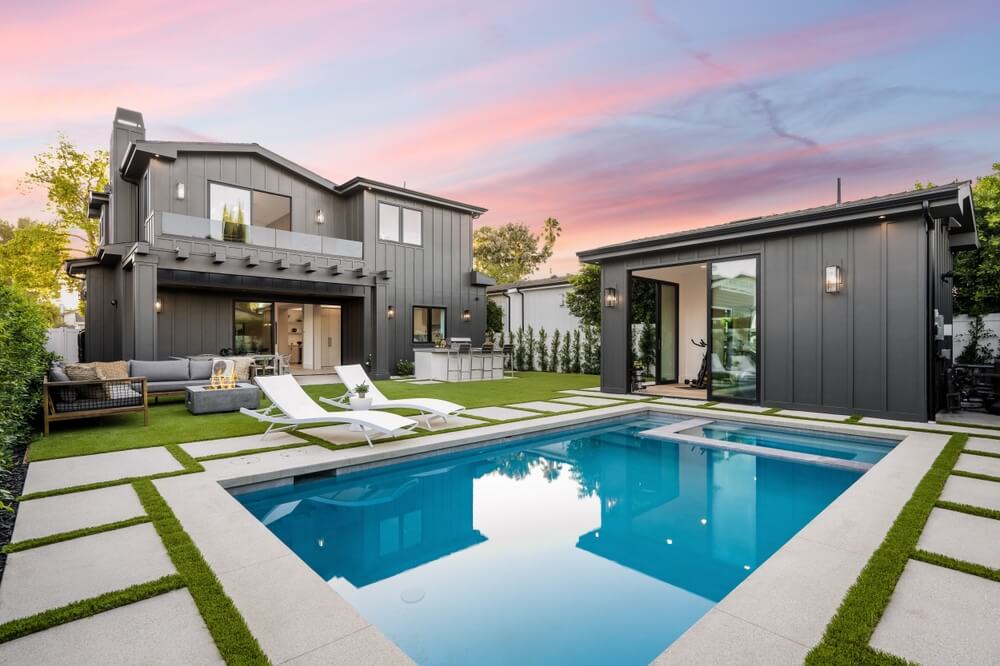
Assessing the lifespan of your chosen pool material is a forward-thinking consideration that can impact your long-term satisfaction and expenses. Concrete pools, when well-maintained, can endure for several decades, but they may require periodic resurfacing. Fiberglass pools often have a long lifespan with minimal maintenance requirements. Vinyl-lined pools, while cost-effective, may require liner replacements every 10 to 15 years.
Factor in not only the initial investment but also potential future costs associated with maintenance, repairs, and eventual replacements. A material with a longer lifespan may justify a higher initial cost if it reduces the need for frequent and extensive renovations.
Crafting Your Perfect Outdoor Escape
In conclusion, choosing the best pool material for your outdoor oasis is a nuanced decision that requires careful consideration of your budget, aesthetic preferences, maintenance commitment, and the long-term viability of the chosen material. By weighing these factors thoughtfully, you can ensure that your outdoor swimming pool becomes a source of joy, relaxation, and beauty for years to come. Whether you opt for the timeless appeal of concrete, the low-maintenance elegance of fiberglass, or the budget-friendly customization of vinyl, your choice will shape an integral part of your home, turning your outdoor space into a haven of leisure and luxury.
